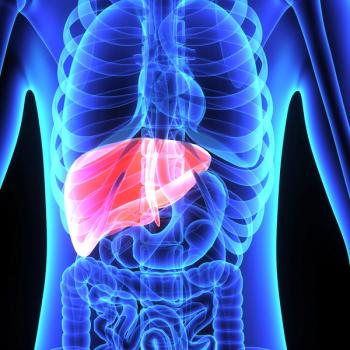
Salma K. Jabbour, MD, Discusses the Value of Treating Patients With NSCLC in a Multidisciplinary Setting
Jabbour detailed the importance of managing care in a multidisciplinary setting for patients enrolled in the KEYNOTE-799 trial with stage III NSCLC.
CancerNetwork® sat down with Salma K. Jabbour, MD, of the Rutgers Cancer Institute of New Jersey, to discuss how patients with stage III non–small cell lung cancer (NSCLC) treated on the phase 2 KEYNOTE-799 trial (NCT03631784) that was presented at the 2021 American Society of Clinical Oncology (ASCO) Annual Meeting can benefit from a multidisciplinary approach to care.
In the trial, patients with unresectable, locally advanced NSCLC were treated with pembrolizumab plus platinum doublet chemotherapy and radiotherapy followed by pembrolizumab monotherapy.
Transcription:
It's really important for [patients with stage III NSCLC] to be evaluated in a multidisciplinary setting and to be managed in a multidisciplinary setting and it is very much a team approach from the onset of the patient's care. I think that really can't be underestimated because these patients require a lot of attention and care to make sure that their treatment really goes smoothly and [adverse] effects from chemoradiation can be managed, such as esophagitis, dermatitis, and pneumonitis. That is really an important component. The communication with the team, both from the medical oncologist, the radiation oncologist, and initial involvement from the surgeon make the determination about resectability. All of it is really important and helps to carry the patient through with a tolerable toxicity profile and…have them achieve a successful and manageable therapy.
Reference
Jabbour SK, Lee H, Frost N, et al. KEYNOTE-799: Phase 2 trial of pembrolizumab plus platinum chemotherapy and radiotherapy for unresectable, locally advanced, stage 3 NSCLC. J Clin Oncol. 2021;39(suppl 15):8512. doi:10.1200/JCO.2021.39.15_suppl.8512.
Newsletter
Stay up to date on recent advances in the multidisciplinary approach to cancer.











































